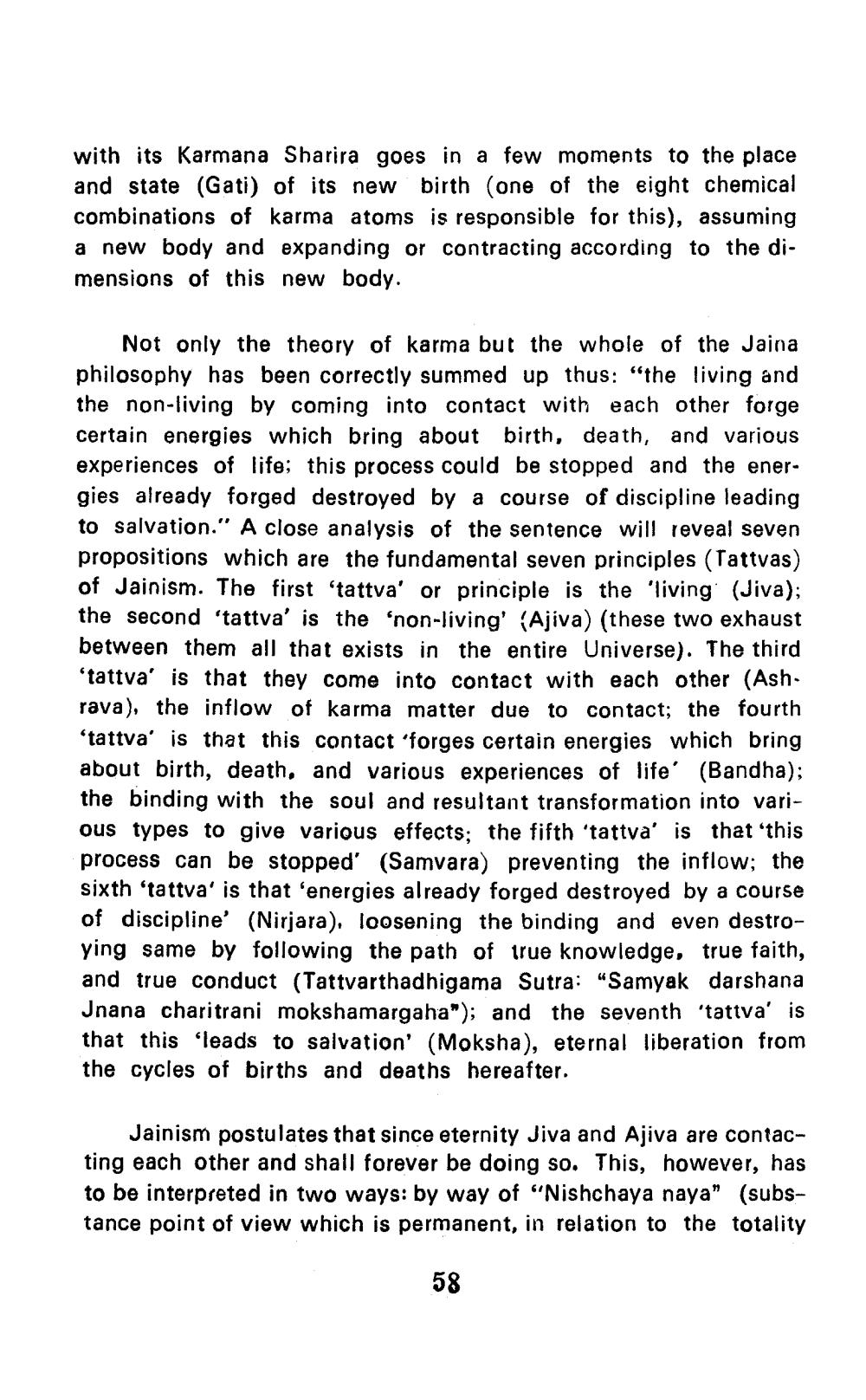________________
with its Karmana Sharira goes in a few moments to the place and state (Gati) of its new birth (one of the eight chemical combinations of karma atoms is responsible for this), assuming a new body and expanding or contracting according to the dimensions of this new body.
Not only the theory of karma but the whole of the Jaina philosophy has been correctly summed up thus: "the living and the non-living by coming into contact with each other forge certain energies which bring about birth, death, and various experiences of life; this process could be stopped and the energies already forged destroyed by a course of discipline leading to salvation." A close analysis of the sentence will reveal seven propositions which are the fundamental seven principles (Tattvas) of Jainism. The first 'tattva' or principle is the 'living (Jiva); the second 'tattva' is the 'non-living' (Ajiva) (these two exhaust between them all that exists in the entire Universe). The third 'tattva' is that they come into contact with each other (Ashrava), the inflow of karma matter due to contact; the fourth 'tattva' is that this contact 'forges certain energies which bring about birth, death, and various experiences of life' (Bandha); the binding with the soul and resultant transformation into various types to give various effects; the fifth 'tattva' is that 'this process can be stopped' (Samvara) preventing the inflow; the sixth 'tattva' is that 'energies already forged destroyed by a course of discipline' (Nirjara), loosening the binding and even destroying same by following the path of true knowledge, true faith, and true conduct (Tattvarthadhigama Sutra: "Samyak darshana Jnana charitrani mokshamargaha"); and the seventh 'tattva' is that this 'leads to salvation' (Moksha), eternal liberation from the cycles of births and deaths hereafter.
Jainism postulates that since eternity Jiva and Ajiva are contacting each other and shall forever be doing so. This, however, has to be interpreted in two ways: by way of "Nishchaya naya" (substance point of view which is permanent, in relation to the totality
58




